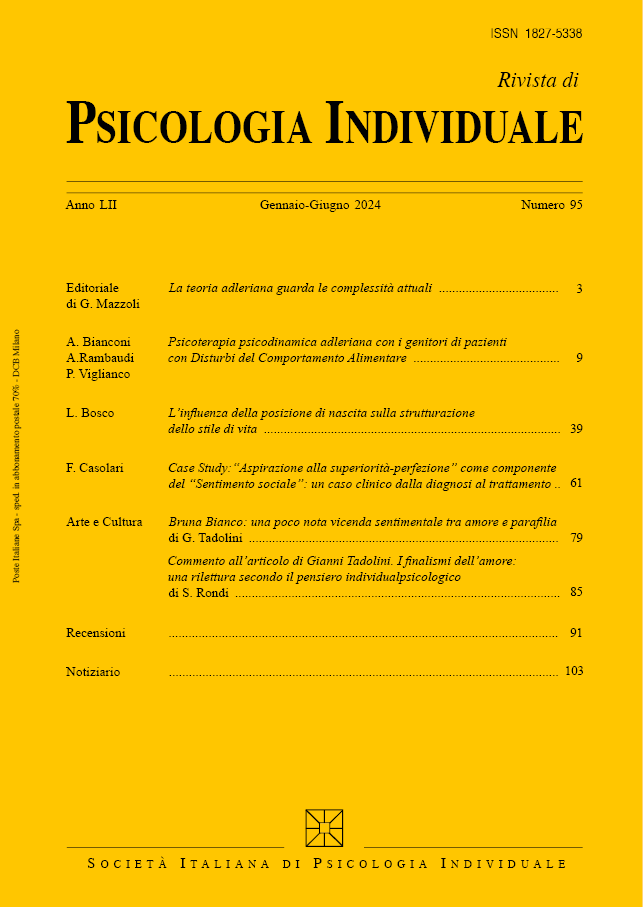Mental hygiene, toxicophilia, drug addiction: methods and techniques of intervention from an Adlerian perspective
Keywords:
indian hemp, cocaine, vital tasks, communication, courses for entertainers, heroin, encouragement, hippotherapy, lsdAbstract
According to the WHO, drug addiction is an irresistible urge to take drugs, with doses gradually increasing, leading to psychological dependence on them. Drug addiction can be prevented by first understanding the incidence of the phenomenon according to the various substances used (heroin, cannabis, cocaine, LSD), for which statistical data from the CNR and ISS for 1980 are reported. It is then necessary to identify, using Adlerian psychosocial strategies [learned in the immediate post-war period by the authors directly from the Allied military psychologist Mirko Dragan, a student of Manes Sperber], toxicophilic personalities, studying their personal and family experiences and their socio-cultural environment, creating the best conditions for proceeding with individual and group interviews. Unlike the other means of intervention mentioned, Adlerian psychotherapy can highlight the causes of the malaise and develop effective compensation mechanisms that encourage the subject to communicate, to struggle to resolve individual difficulties without self-deception, and to reintegrate into society by facing the tasks of work, love, and friendship required of them. Based on these premises, courses have been launched for community leaders (the program is provided below) and hippotherapy for young people






